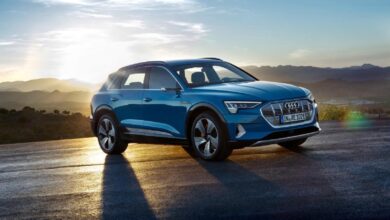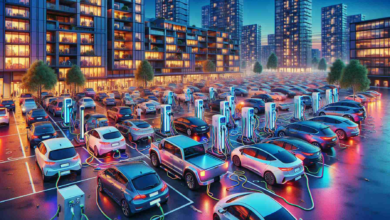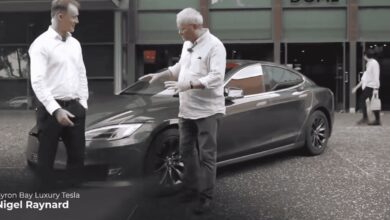Why you’re now more likely to buy a hybrid than an EV

“Hybrids are the gateway for the transition” to electric cars, said Stephanie Valdez Streaty, director of Industry Insights at Cox Automotive. “It’s a good option for consumers who aren’t ready to buy an EV.”
Americans are more hesitant to buy EVs now than they were a year ago, according to a March Gallup poll, which found that just 44 percent of American adults say they’d consider buying an EV in the future, down from 55 percent last year. High prices and charging worries consistently rank as the biggest roadblocks for electric vehicles, but political partisanship is starting to factor in. Republicans are less likely to buy an EV than Democrats.
That attitude shift coincides with a slowdown in electric car and truck sales. Americans bought fewer EVs in the first quarter of 2024 than they did the quarter before — the first drop since the pandemic threw the economy into chaos in 2020.
Meanwhile, hybrids keep getting more popular. Over the past year, hybrids have increased their market share even as EVs have stalled out.
The pros and cons of hybrids vs. EVs
Hybrids offer some advantages over EVs. They’re generally cheaper, and they can fill up on gas to drive long distances without a charge. “You don’t have to change anything about your lifestyle,” Valdez Streaty said.
In fact, hybrids can even be better for the environment than some bulky electric cars. The “greenest” car in America is a Toyota Prius Prime SE, according to a report from the American Council for an Energy Efficient Economy.
But hybrids come with plenty of drawbacks. Having two separate power systems, one electric and one gas-powered, means more maintenance challenges, and running on gas is more expensive than running on electricity.
Plus, continuing to burn gasoline in the long run won’t help avoid the most catastrophic effects of climate change. New federal car pollution rules will allow carmakers to shift from pure gas engines to hybrids in the short term, but eventually the rules will push all automakers toward electric vehicles after 2030.
Today, the decision comes down to car buyers’ individual circumstances, according to Valdez Streaty. For those who mostly commute short distances, have access to charging stations nearby or at home and can afford to spend a little more upfront to save on fuel later, EVs make sense, she said. For those who drive long distances and don’t have charging stations in their area, a hybrid is a good option.
“We’re going to see a mix of hybrids and EVs, and it’s going to be dependent on your situation,” Valdez Streaty said.
Hybrid models hit dealer lots
If you’re considering a hybrid, you should have plenty of options. Automakers are flooding the market with new hybrid models and pulling back on some of their more ambitious plans to ramp up EV production.
This year, Ford delayed its plans for new electric pickup and SUV models and announced it will develop hybrid versions of all its models by 2030. General Motors — which has committed to sell only electric vehicles by 2035 — now plans to start selling hybrids in the United States for the first time since it scrapped the Chevy Volt in 2019.
Meanwhile, Toyota — maker of the quintessential hybrid, the Prius — stuck to its hybrid-first strategy even as other carmakers staked their futures on EVs, and it has been rewarded with record sales and profits.
“Manufacturers are determining, ‘Where is that demand for EVs? And how do I shift to support the greater demand for hybrids?’” Valdez Streaty said.



